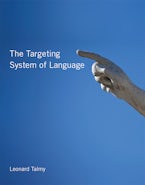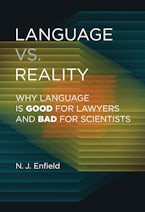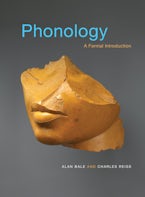The book presents an excellent overview of the field and will certainly serve as an important source of reference for speech perception and language acquisition researchers. At the same time, it contains many fascinating theoretical insights into the operation of basic principles of development that have the potential to inspire future research within and beyond the area of speech perception.
Vera Kempe
Contemporary Psychology
The Discovery of Spoken Language addresses all the main issues in current experimental studies of infant speech and language development. This is the first attempt to review and coordinate the findings of an important area of study often neglected by researchers in the broader, general field of language acquisition.
Michael Studdert-Kennedy, Haskins Laboratories
This is an interesting, provocative, and necessary book. It is comprehensive, providing the reader with a very nearly complete view of the infant's earliest encounters with language during the first year of life. Most importantly, it describes how these encounters support (bootstrap) the beginnings of language acquisition—a topic that most other writers in the field have either ignored or given only minimal attention. To my knowledge, there are no other books or monographs that even approach the thoroughness and thoughtfulness that Jusczyk brings to this topic. It should be read by all who are interested in the acquisition of language or the nature of early human development.
Peter D. Eimas, Brown University
This is a remarkable and important book. Jusczyk has composed a fine portrait of the infant listener and the many attempts to describe the beginnings of language. The scope is comprehensive, and he has told the tale with rare style.
Robert E. Remez, Professor of Psychology, Barnard College
The discovery of spoken language beings at birth and advances at an awe-inspiring rate throughout the first year of a child's life. By the end of that first year children have acquired knowledge of their native language's phonological system, and of the characteristic shape of spoken words of their language; they can extract new works from continuous speech input and recognize the many words they already know even when they occur in new contexts; and all this perhaps before they have yet uttered a single word themselves. The discovery of these developmental achievements has occurred in a relatively short period of exciting research advances in infant speech perception research; The Discovery of Spoken Language charts these advances and makes the whole picture for the first time open to discovery by readers outside this research area.
Anne Cutler, Max-Planck-Institute for Psycholinguistics, The Netherlands
A comprehensive overview of important research bearing on essential questions concerning the bases of linguistic performance. Jusczyk's own studies remind us how masterful application of experimental methods can yield empirical data that impose strong constraints on cognitive theorizing. This research has broad theoretical implications that are just beginning to be understood. The phenomena summarized here should attract the rapt attention of cognitive scientists interested in the biological, experiential, and computational bases of language.
Mark S. Seidenberg, Neuroscience Program, University of Southern California
Jusczyk's focus of what is happening in the realm of language perception is an important and much-needed contribution to our understanding of the process of language acquisition. Information about the foundations being developed during this early period provides a crucial perspective, which was unavailable until recently, on the more easily observable processes of language development which begin around the middle of the second year. Nobody is better qualified to pull together this work than Peter Jusczyk, who has been both a pioneer and a leading researcher in the study of early perception.
Ann Peters, Professor of Linguistics, University of Hawai'i












